Why Nettle Tea is Good For Asthma
As someone with lifelong asthma, I’m always on the look out for natural ways to easy my symptoms. Tea is one of my favorite go-to’s, and I’ve recently discovered a new tea that is making some buzz in the lung health community
A 2017 study found that nettle can protect against airway inflammation, and therefore it is also anti-asthmatic. Nettle tea is good for asthma, lung health and it has many other health benefits. I drink it regularly because it helps me ease my symptoms.
If you would like to learn about more teas that may be beneficial for asthma, please see here. Otherwise, let’s jump into everything you need to know about nettle tea and lung health.
What Is Nettle Tea
Nettle tea is made from the nettle herb, which comes from a plant native to northern Europe and Asia and now found pretty much across the globe. The nettle plant, or Urtica dioica, is also called the stinging nettle or garden nettle. For the rest of this article, when I refer to ‘nettle,’ this is what I mean.
The stinging nettle gets its name because in plant form, it has sharp hairs that can make your skin become burning, itchy and red. Thankfully, when you drink nettle tea, this isn’t a concern! (I’ll cover how to make nettle tea safely below).
Nettle tea has been used as an herbal remedy for centuries – even Hippocrates recommended it. It’s been used to treat a variety of ailments, ranging from mouth ulcers and diarrhea to kidney stones and high blood pressure.
Nettle tea has also been used traditionally to treat asthma, and there is new research that shows that historically, people were right to use it this way.
Nettle Tea & Asthma
I’m always interested in teas that have been used traditionally to treat asthma and allergies. Herbal remedies are never going to cure asthma, but I do find they can help ease symptoms. And when you have asthma, you know what you’d do to even ease your symptoms a little bit for a little while.
Not only has nettle been a traditional treatment for asthma and lung health for centuries, but new research suggests that because nettle is anti-inflammatory, this herb can be very beneficial for asthma patients.
Specifically, a 2017 study in the Pharmaceutical Biology Journal found that stinging nettle (in extract form) “was proven to be effective in relieving pulmonary inflammation through the significant reduction of level and infiltration of inflammatory cell in lungs.” In layman’s terms, this means that stinging nettle helped to relieve inflammation of the lungs.
Since asthma is caused by inflammation of the airways and lungs, nearly every tea I suggest for asthma is anti-inflammatory (see more anti-inflammatory teas here).
And since it specifically helps with inflammation of the lungs, the authors of this study suggest that their results provide “evidence to the anti-inflammatory and anti-asthmatic effect of the nettle extract.”
I’m not a doctor, but reading this study was enough for me to want to try out nettle tea for myself. And I’ve found that it is quite soothing, and, when used in conjunction with other remedies for asthma (see more of what works for me here), it helps me keep my asthma in check.
Nettle Tea & Allergies
Asthma and allergies often go hand in hand – they certainly do for me. Thankfully, nettle tea may be able to help both asthma and some allergies.
Nettle has traditionally been used to treat allergic rhinitis, commonly known as hay fever. This 2009 study found that nettle has properties that “contribute to the inhibition of pro-inflammatory pathways related to allergic rhinitis.” In other words, it might inhibit histamine production in the body and lower related inflammation.
A limited human study in 2017 found that nettle had certain positive effects on controlling allergic symptoms, but found similar results from their placebo. That said, because of limitations within their study (including a short study time of only one month), the authors remain optimistic and call for the need for more studies.
If you are looking to use nettle specifically for treating allergies, this study suggests taking 600 mg of freeze-dried leaves a day (find a nettle extract easily on Amazon here).
Whether you take nettle extra or nettle tea, I usually suggest you journal your results when trying out a new home remedy. It helps you keep track of what is actually working for you. Learn more about how to journal for asthma management here.
More Benefits of Nettle Tea
Like I mentioned above, nettle has been used to treat a variety of health issues, and there is growing research to back up many of these uses. Here are some more interesting studies:
- A 2000 study found nettle beneficial for joint pain (source)
- A 2003 study confirmed its anti-inflammatory properties (source)
- A 2003 study confirmed its immunomodulatory effects (source)
- Several studies suggest it may help with enlarged prostate (source)
- Several studies suggest it may lower blood pressure (source)
- Several studies suggest it may aid in blood sugar control (source)
A 2013 study also found that nettle contains caffeic acid (an antioxidant micronutrient), gallic acid (another important antioxidant), quercetin (a flavinoid that helps make rooibos tea so beneficial – learn more here), scopoletin (used traditionally to treat arthritis), carotenoids (antioxidants that are often converted to Vitamin A), secoisolariciresinol (and organic compound possibly linked to heart heath) and anthocyanidins (source). Phew.
Furthermore, nettle is high in calcium, iron, magnesium, phosphorus, potassium, sodium, Vitamin A, Vitamin B, Vitamin C, Vitamin K, and it contains all 20 amino acids (source). What’s not to love?
Side Effects of Nettle Tea
Nettle tea is generally safe to drink, but you should avoid nettle tea if you are pregnant or breastfeeding. If you have low blood pressure, diabetes or kidney problems, you should talk to your doctor before using nettle. Further proof that nettle really is powerful, it can impact these conditions.
Nettle tea may also interact with some medications, so be sure to talk to your doctor or pharmacist before indulging (see a partial list of medications that might be affected by nettle here).
I always suggest that people with asthma talk to their doctors before making major changes to their diet or supplemental regimes.
And of course, be careful if you are dealing with the plant itself, as it has stinging barbs that can harm your skin. You also shouldn’t eat fresh nettle leaves.
How To Make Nettle Tea
As previously mentioned, you can take nettle in extract form, but my preferred way to use nettle for asthma is to make nettle tea. I find warm tea itself quite soothing for my asthma symptoms.
Some enthusiasts like to forage for nettle to make their own tea, or buy fresh nettle in holistic grocery stores. You can even cook with nettle – find some interesting recipes here.
You can also find dried nettle, and make your own tea, infusing about one teaspoon of nettle per one cup of boiling water.
Or you can do what I do, and keep it easy. Simply buy premade, high quality nettle tea, which isn’t too expensive. I’m a fan of Buddha Teas, and you can find their nettle tea reasonably priced on Amazon here.
Like many herbal teas, nettle tea is a bit of an acquired taste – you likely wouldn’t drink it if it didn’t have health benefits. That said, it’s not too bad, and after a cup or two you’ll likely come to enjoy it. It has an earthy taste, often likened to a sweetened seaweed. If that doesn’t sound great to you, feel free to add a little honey, which may have several benefits for asthma of its own.
Final Thoughts
Nettle tea is something I use to help keep my asthma symptoms in check. It’s not an asthma cure, of course, but it can be nice, relaxing and health-filled part of your day. Be sure to talk to your doctor, but I hope you enjoy it as much as I do.

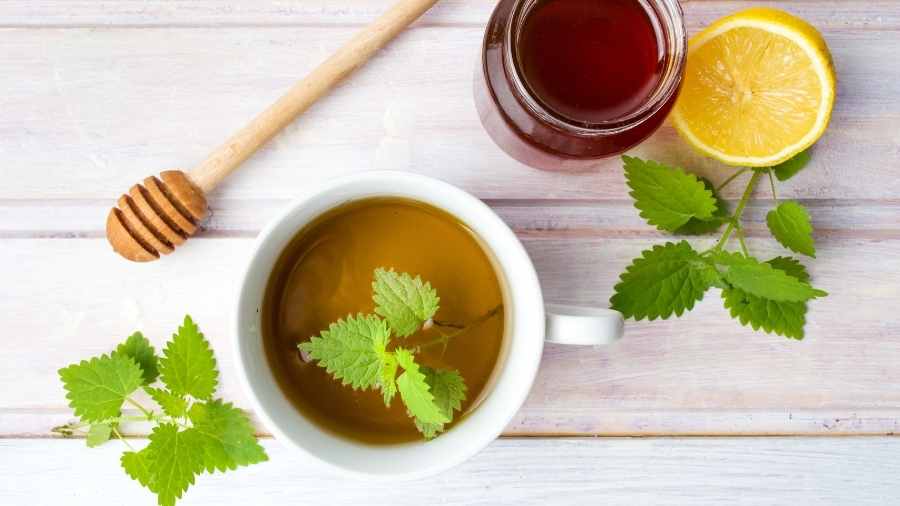
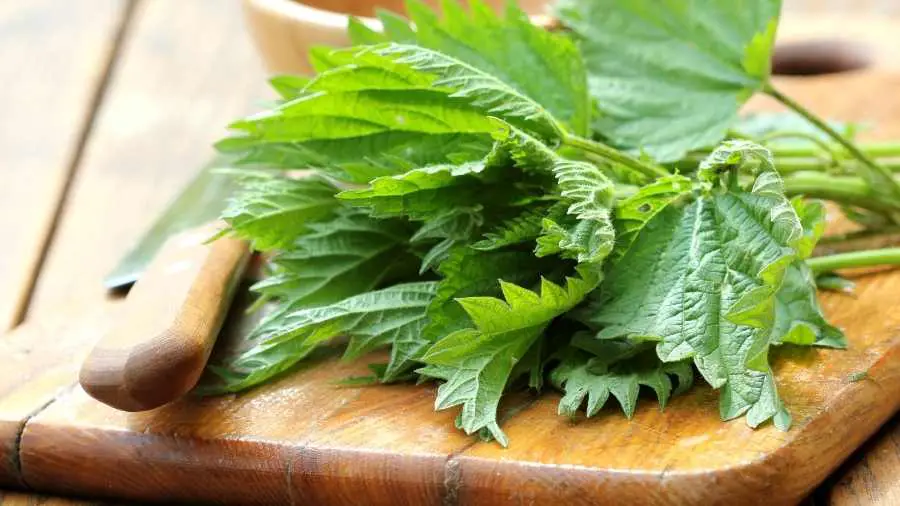
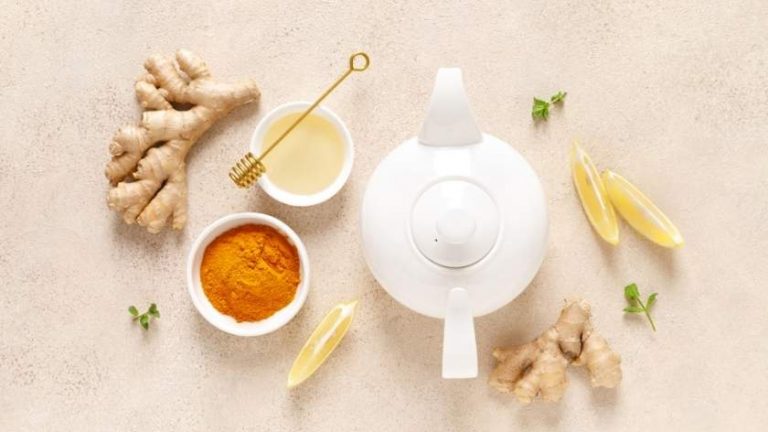
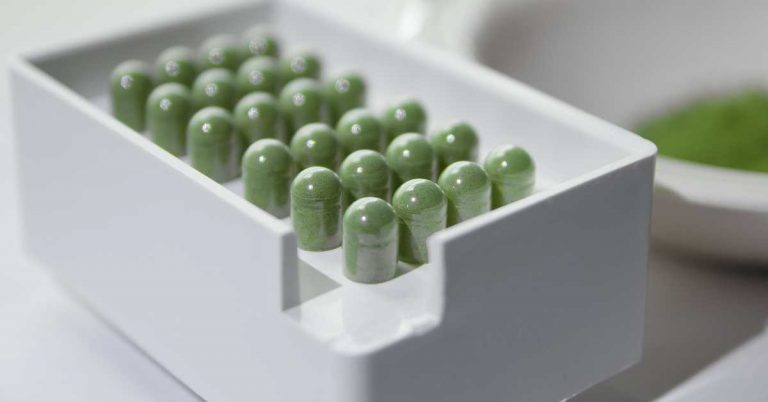

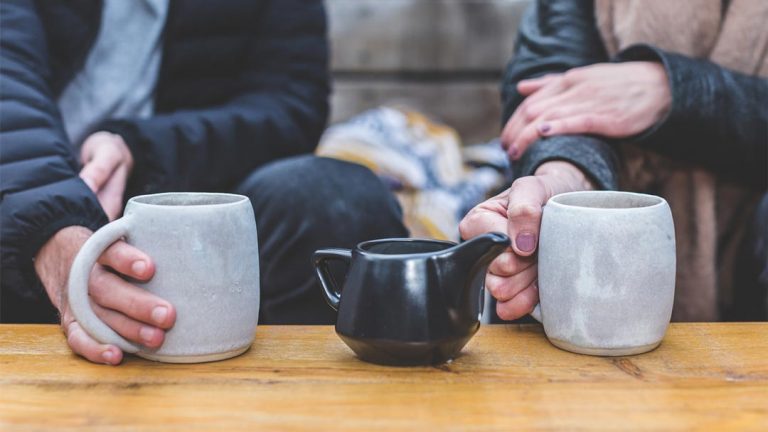

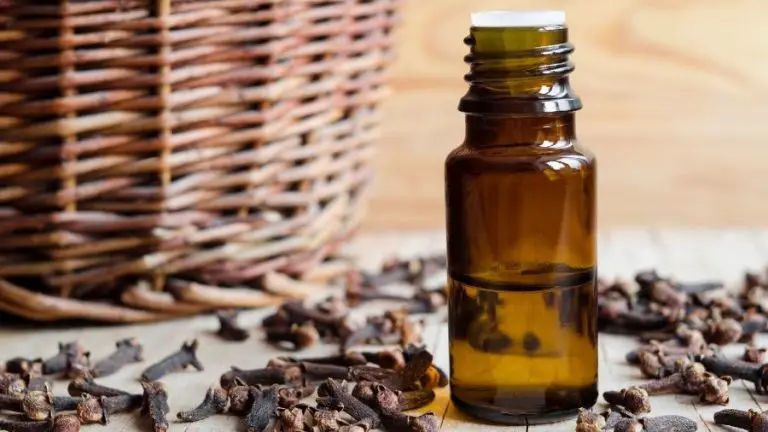
Hi Nick.
Great article. Thanks for the info! I actually went to buy nettle tea today for the first time because I had heard it was good for asthmatics, so seeing your article today was kind of the universe telling me I should definitely try it. I also have suffered from environmental and allergic asthma my whole life. It is under control for the most part, but
I find that breathing exercises, proper diet, and exercise keep me at my best. We have to listen to our bodies and know what the triggers are.
I wish you all the best with your health and please do keep me informed with any future articles/blogs you write, specifically about asthma/allergies.
Best,
Luis
Hi Luis,
Thanks so much for the kind words. Nettle tea is a powerful tea for asthma, especially when combined with all the lifestyle changes you’ve incorporated. It’s sounds like you’re on the right path.
Cheers!